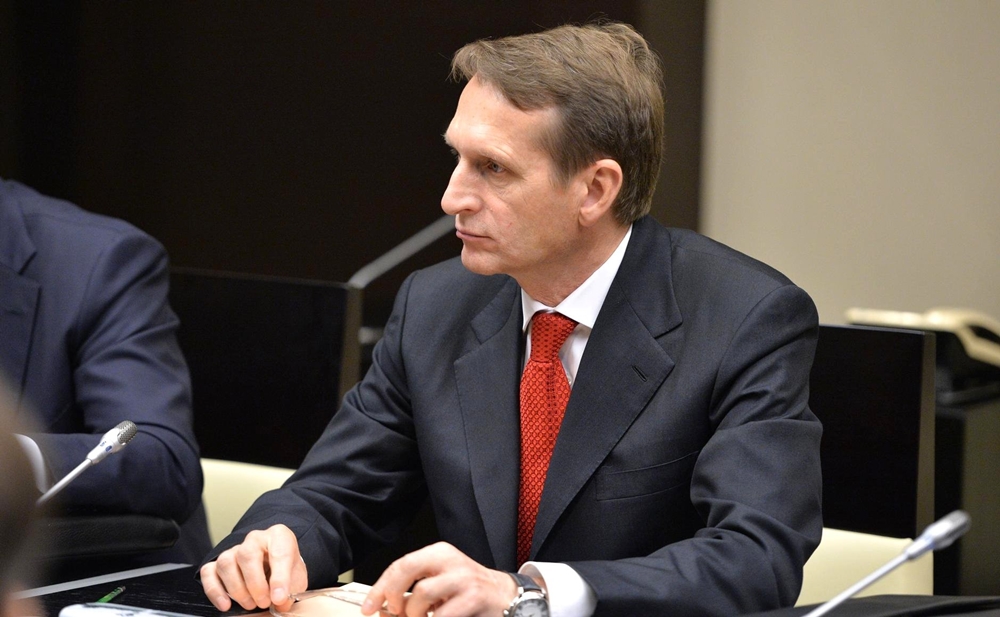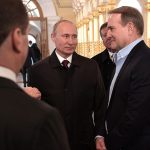RUSSIA MONITOR
Date: 25 April 2018
The head of SVR in Serbia. What is the Russian intelligence up to?
An april visit of the head of Foreign Intelligence Service of the Russian Federation in Belgrade is a sign that in the upcoming months one should expect new destabilising Russian actions. The starting point would be probably the Serbian part of the Federation of Bosnia and Herzegovina. For Russia, Western Balkans became another important battlefront in the geopolitical battle with the West. Russia wants to block further extension of NATO and EU on the West Balkans.

On April 16, director of Foreign Intelligence Service of the Russian Federation (SVR) Sergey Naryshkin met with the President of Serbia Aleksandar Vučić in Belgrade. In the announcement published after the meeting, SVR wrote that “during the conversation both sides underlined the necessity of obeying international law in dealing with regional conflicts”. They talked, among others, about a cooperation between SVR and Serbian intelligence ABI. Naryshkin also met with the head of parliament and head of the Serbian Orthodox Church. It is unlikely for head of state to officially host a head of secret service of other country. This only confirms special relations between Serbia and Russia and the special role of Russian secret services within them.
Moscow pays much attention to Western Balkans and as it was visible in the putsch in Montenegro, it is ready to react with force. Politics in the region are supervised by Nikolai Patrushev himself, Secretary of the Security Council and former long-term director of FSB. GRU is also very active there. One should also spot the activity of oligarch Konstantin Malofeev. A nationalist and proponent of pan-Slavic orthodox community Malofeev was earlier strongly engaged in financing Russian activities in Crimea and Donbas. Businessman has also his interests in Serbia. He is famous for organising a visit of large number of Cossacks in Banja Luka, the capital city of the Republika Srpska, as a support for president Milorad Dodik.
Dodik is the most important Serbian pro-Russian politician in the region. Since 2014 he has met with Vladimir Putin six times. In October, he will be probably again chosen for President of Republika Srpska – one should expect that he will immediately take steps to withdraw the republic from the Federation of Bosnia and Herzegovina. Russians train police and paramilitary groups in the Republika Srpska and supply weapons. Moscow wants to use the endeavours of Bosnian Serbs to gain independence – its aim is to destabilise the region. Several hundreds of Serbs gain the battle experience in Donbas fighting with Ukraine. Such a cooperation between Russia and Serbia has a long-term tradition. Hundreds of Russian volunteers helped Serbs in the civil war in Bosnia and Herzegovina in the first half of the 90’.
Since 2012, in the city of Niš in the Southern Serbia there is a Russian-Serbian Humanitarian Centre. It is not a coincidence that it is located near the borders with Macedonia, Bulgaria, Kosovo and Montenegro. Western countries, including the USA claim that it is a cover for the activity of Russian intelligence service for the whole southern Balkans. In Niš, among others, Serbian paramilitary groups, such as Serbian Honour consisting of Bosnian Serbs are to be trained there.
All texts published by the Warsaw Institute Foundation may be disseminated on the condition that their origin is credited. Images may not be used without permission.














